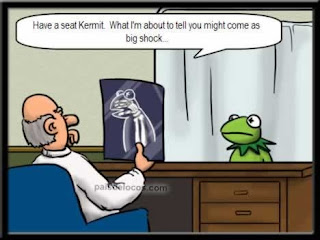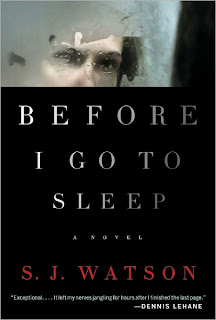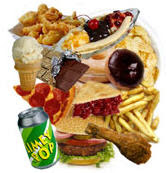Because it had the keyword "tennis" in its description, my TiVo recorded an ESPN documentary on Renee Richards, the tennis playing transsexual from the 70's.

So I watched it and I'd like to talk about it. But before I discuss the film itself, let me explain my general attitude toward gender reassignment, so that I can make my biases known up front.
As much as I'm an advocate for LGBT rights, I have to admit that I have a blind spot for the "T" part. Don't get me wrong: I am pro-choice on this issue. I don't want to deny anyone the right to change their gender, nor do I think they should be discriminated against because of it.

But, unlike with homosexuality, which is simply about allowing people to love who they love, it's harder for me to grasp and sympathize with the issues behind changing one's gender. It involves uncomfortable issues (to me) like an entirely new identity, hormone injections, invasive surgery, denying your history, and challenging your genetic code (XY vs. XX.)
I can accept that although these things scare me personally, there are people who are so miserable in the body they were born in that they embrace such changes. So I'm learning more about the issue and trying to be more open-minded.
It was with this attitude that I watched
Renee, a documentary produced by ESPN. I tend to think of ESPN as a pretty testosterone-driven network, so I was surprised to see them tackling such a progressive topic.
+++++
The central question of the film is whether Renee Richards, after undergoing gender reassignment, should have been allowed to compete in professional women's tennis in 1976. Would a man who becomes a woman have too much of a competitive advantage playing against women?

I know this question is a political minefield, with lots of implications beyond competition and tennis, but at face value the answer seems obvious to me: Of course she would have a competitive advantage. For the first 40 years of her life, Richards had played men's tennis in a man's body. She was 6'2", with broad shoulders, large hands, and size 12 feet. I suppose we could get mired in a discussion on what exactly the rationale is for separating men's and women's tennis, but I assume it's because men have, on average, bigger and stronger bodies.
In the documentary, tennis legend Billie Jean King says she talked to experts about gender reassignment, and they said it's really the hormones (testosterone/estrogen) that separate the men from the women. And now that Richards was receiving estrogen treatments, it made her body more like that of a woman's. But still, her body was
built by testosterone, wasn't it? Even if it wasn't using it anymore?
To me, what makes the answer to the "competitive advantage" question obvious is that Richards was a 42-year-old amateur playing in the U.S. Open. Do you know how hard it is to make it to the U.S. Open? Most amateurs and pros who dedicate their entire lives to tennis don't make it there, not even in the prime of their game.
And here was a practicing doctor, not a professional tennis player (although she had been one of the best amateur players in the country in her 20's), who had not seriously competed in years and suddenly burst on the scene in middle age and could compete with the best players in the world? After having undergone a very traumatic physical transformation? Many in the documentary talked about what a competitive
disadvantage this was, and I agree, which paradoxically just proves that she must have had a natural advantage. It's hard for me to imagine any "natural" woman could have come back to the game at such an age and been so competitive.
At the end of the movie, Richards herself even seems to admit that might not have been fair.
++++
I appreciate how difficult it must have been for Richards to give up her whole life and identity in order to be true to herself. She gave up a wife, young son, and successful medical career, moved across the country, and became a different person. But does being sensitive to that issue mean it's fair to let her compete in professional tennis against women? Does my answer to that question have to hinge on whether I support LGBT issues?
+++++
Overall, I enjoyed the film for bringing up these thorny questions. Some other issues it brings up:
In the very first scene of the movie, Richard's older sister refers to her as "him." When the interviewer asks her sister about this, she says (of Renee), "He's my little brother. He'll always be my little brother." Renee says the male pronouns don't bother her, but her sister is the only person in the world for whom that's the case. (Kind of like how my sisters are the only people who can still call me "Timmy" and it doesn't sound weird.)
Richards' son, who was four when his dad moved away and became a woman, is about my age and seems to have a lot of resentment toward his parent. (Curiously, Richards never uses the word "mom" or "dad" to describe herself in the movie, just "parent.") In the documentary, her son is a troubled, drug-addled loser who looks and talks like Michael Stipe of REM.
Curiously, I couldn't find an online picture of her son to put here. I wanted to show how he looks like Michael Stipe. I guess it's good that the interwebs, so far, are respecting his privacy.
Richards has been living with a female partner for many years now. But their relationship is completely asexual. Ironically, when she was a man, Renee was quite the rake. She says that since she became a woman, she doesn't have the passion for men like she had a passion for women when she was a man. "I lost that," she says.
Overall, the tone of the movie was sad. It's not a happy, triumphant, or inspirational story. So often when you hear of gay people coming out or transgender people... um... transitioning (? Not trying to be cute here, I just don't know what the proper verb is), they talk of how happy and fulfilled they are now that they can be themselves. I don't get that impression from Richards, at least not through this movie. Maybe that's a fault of the film, or maybe it's an accurate interpretation. At the very end of the movie, Renee's son uses the phrase "torment and happiness" to describe her.

 I love this cartoon.
I love this cartoon. This one, while still funny, doesn't quite have the impact of "this will change your life forever."
This one, while still funny, doesn't quite have the impact of "this will change your life forever." Before I Go To Sleep, by S.J. Watson, is about a woman with memory problems. It's not a new idea. In fact, the book is a perfect combination between two movies, 50 First Dates and Memento.
Before I Go To Sleep, by S.J. Watson, is about a woman with memory problems. It's not a new idea. In fact, the book is a perfect combination between two movies, 50 First Dates and Memento.






































